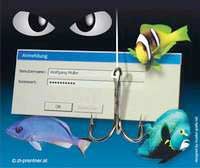“We are hiring a package receiver in the US, requirements: Male – 20 years and older, internet-savvy, honest, has sales experience, and priority will be given to those with experience in online transactions, salary $1,000/month!!!”
This is a snippet from a forum for “free” shippers, with a very concise title: “Hiring Drop Pros!”
Who are Drops?
Dak, (the alias used on the forum – NV) a shipper (a person who purchases goods online using stolen accounts), told me:
 |
|
Ads looking for Drops on various forums. |
“A few years ago, shipping goods directly to Vietnam was quite easy, and I knew many networks of IT-savvy individuals in Vietnam who made money buying goods indiscriminately using stolen accounts like this. Now, things have become much more difficult; Vietnam, along with a few other Asian countries, has been blacklisted by foreign online marketplaces (the blacklist for frequently occurring online trade fraud), and most will block IP addresses and delivery addresses in these countries.”
So how do the residents of the “underground” shipping world continue to pull off these lucrative tricks?
“Where there is a will, there is a way“: Vietnamese shippers began to look for individuals living abroad to receive packages for them – they refer to these individuals as Drops. After purchasing goods using stolen accounts, the shipper lists the delivery address as that of the Drop, who resides overseas and arouses no suspicion. Once the Drop receives the package, they will split the earnings (usually 50-50 or 60-40 in favor of the Drop) and send the remainder back to the shipper. Of course, the goods are now completely clean!
Seeing my intention to delve deeper into this issue, Dak introduced me to a Yahoo user he considered a “veteran” in the shipping world who has now retired. “Kid…”, (the nickname of the “expert”) was quite calm and aloof, responding very little to my questions.
“The shipper’s perspective is to learn on their own; if they don’t know something, ask; if they can figure it out by themselves, don’t ask, as they will only receive disdain” – Kid… declared confidently. The conversation began when I asked about the concept of Drop, and it seemed this was not a new topic; Kid… opened up more: “Drop originated from the need to receive goods purchased with stolen accounts; initially, we sought individuals in Vietnam who could conceal their personal information to safely receive goods from customs. Later, we would meet privately to retrieve the items and split the profits.”
Kid… recounted that a few years ago, the shippers in Hanoi still remembered Quang Drop, an old-timer, “both bold and greedy” but “played very fair.” Quang frequently changed his lodging address in Hanoi and primarily worked as a receiver for shippers sending goods back to Vietnam. The profit-sharing ratio Quang often negotiated could reach up to 50% of the total value of the goods.
“After purchasing goods, we would contact Quang, and he would provide an address for us to send the items to, which could be a temporary student dormitory. After receiving the goods, he would just disappear; it could be a non-existent address but with a mobile number. And when customs or the post office couldn’t find this address, they would call the mobile number to find the owner of the goods,” Kid… explained.
New Tricks
Later, as shipping to Vietnam became challenging due to law enforcement uncovering and detaining many individuals, shippers began to search for Drops abroad, often Vietnamese students, sometimes even foreign internet residents. This would make sellers less suspicious since the delivery address wouldn’t be in Vietnam (a country that doesn’t commonly use credit cards or online payments for purchases).
To find a suitable Drop, shippers often had to leverage all their international connections, starting with friends and family. They also sought Drops through forums or by referrals from others.
In addition to staging a play to deceive naive acquaintances into receiving goods on their behalf and bearing all risks, shippers could also bribe with money, spending time training Drops on how to receive items, sell at higher prices, and avoid scams when selling… Many young people cannot resist the lure of easy money and accept to get involved with shippers!
“After receiving the goods, does the Drop send the share back to the Shipper in Vietnam as a gift?” I asked.
“In the past, or in necessary cases, yes! But for professionals, Drops are willing to return to their home country every few months to carry goods back legally. However, currently, the majority of Drops receive the goods and sell them immediately, then send the shared money back to Vietnam.”
Kid… added: More advanced, the “underground world” has developed a new link: intermediaries who “make money out of thin air.”
These individuals seek Drops and Shippers, communicating with both to manage the reception and delivery of goods but must ensure that the two parties do not know or contact each other directly. They create a network where only the intermediary knows both parties and is the only one completely safe. The profit-sharing ratio after a successful transaction between the shipper and Drop will be 20 to 30% for the intermediary, with the remainder equally divided between the other two.
When “the thief meets a super con artist”
 “The most important point for a Drop is to be honest!” Kid… said, recounting a memory: “I was once deceived by a Drop who took a large quantity of goods and disappeared without sharing anything. Of course, I didn’t suffer a loss, but it was incredibly frustrating. Later, shippers found a trick to take control; if a Drop swallows the goods, the shipper would retaliate by sending a large quantity of unusual goods to the Drop’s address to raise suspicions with the authorities or shipping companies!”
“The most important point for a Drop is to be honest!” Kid… said, recounting a memory: “I was once deceived by a Drop who took a large quantity of goods and disappeared without sharing anything. Of course, I didn’t suffer a loss, but it was incredibly frustrating. Later, shippers found a trick to take control; if a Drop swallows the goods, the shipper would retaliate by sending a large quantity of unusual goods to the Drop’s address to raise suspicions with the authorities or shipping companies!”
Shortly after, Kid… facilitated my conversation with another shipper whom Kid affectionately called “Moon…” (a nickname derived from the initials of his Yahoo ID) with a brief introduction: “This guy is going crazy because 10 Apple iPods were scammed by a Drop. It’s been two weeks with no news!”
Moon… bitterly said: “A Drop can easily become a Drip – meaning from a hired receiver to a thief, disappearing after receiving the goods!…”
Moon has several Drops in the US who specialize in receiving goods shipped by Moon, then selling them cheaply in the US and sending the share back to Moon. Of course, all communication occurs only through chat and email. One of Moon’s most trusted Drops deceived him by successfully receiving a large shipment of 10 Apple iPods and then vanished!
“It’s truly a case of the thief meeting the old lady, a thief encountering a super con artist; perhaps due to the high value of this shipment, the Drop became greedy…” – Moon… concluded: “Ironically, greed is the only commonality that brings everyone together and binds the links into a tightly woven shipping network, which then leads to betrayal between Drops and Shippers…”
The situation of shippers being “scammed” by Drops – receiving goods and then disappearing – is becoming increasingly common. To the extent that on many forums for shippers today, numerous topics list “blacklists” of “super con artist” Drops to warn others.
The Spiral of Temptation
The experiences, skill enhancement, and illegal profit-taking are growing, and the young people in that underground world are increasingly drawn into a cycle of crime. Kid… still regrets after retiring: “Using tricks to earn illegal money, which isn’t from my hard work, leads to wasteful spending. Easy come, easy go; money from stolen accounts ends up being squandered on football, gambling, and useless pursuits, and when looking back, my academic career is a mess and… the future is still at the starting line!”
From satisfying curiosity to experimentation and being pulled into the vortex of greed, many young individuals who have gained money too easily spend wastefully and become dependent on it. To this day, the “underground world” has not forgotten the examples of several “big names” who were recently summoned by C15 – the Ministry of Public Security due to ample evidence proving these individuals bought goods back to Vietnam using illegal accounts.
The vigorous efforts of law enforcement have indeed helped reduce much of the activity of those who specialize in “free” shipping.
However, perhaps the allure of money still makes it difficult for many to resist, especially when they have enough power to manipulate information for profit. The peak of these underground residents, in the whirlpool of ambition and crime, is becoming transnational criminals: ATM cash theft and counterfeiting ATM cards.
The Phong

















































